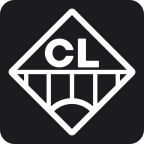Porto University researchers use (rare) 'super laser' in the Netherlands
Researchers from the Faculty of Science at the University of Porto (FCUP) recently traveled to Nijmegen in the Netherlands to visit FELIX (free electron laser for infrared experiments), one of the few laboratories in the world equipped with a free electron laser with very high power, capable of inducing new properties in materials.
"We have been accepted within the scope of the competition on the merits of the work we intend to carry out, and this visit is crucial for our investigation," says Rui Vilarinho, a researcher at the Institute of Advanced Materials, Nanotechnology and Nanotechnology Physics. Photonics at the University of Porto (IFIMUP), headquartered at FCUP.

The FCUP team is working in an emerging field: phonology in ultra-short periods of time. This region consists of an excited material to a non-equilibrium phase (hidden phase) that induces magnetism. Such research is still impossible in ordinary laboratories using conventional lasers.
This time, the scientists carried out experiments on NdFeO3 crystals, "a very interesting and complex material from a magnetic point of view, belonging to the rare earth ferrite family", stressed Rui Vilarinho.
In the little-known terahertz radiation path
The researchers describe the free electron laser as producing "differences in material characterization in a coherent and non-linear manner" through strong ultra-short pulses in the terahertz (THz) region. The response that terahertz radiation gets when it interacts with a material is similar to our fingerprints: we get a fingerprint of the molecule or the material being analyzed.
In contrast to X-rays and infrared rays, the range of terahertz radiation is virtually unknown to the public, and scientific and technological exploration has been minimal. So the FCUP physicists are breaking new ground in this field and exploring the different magnetic phases of multiferroic materials in a work that is still at the level of basic science.
In addition to Rui Vilarinho, FCUP Professor Joaquim Agostinho Moreira, doctoral student of physics Mariana Gomes and postdoctoral researcher Ana Silva also traveled to the Netherlands.
Source: Laser Net








